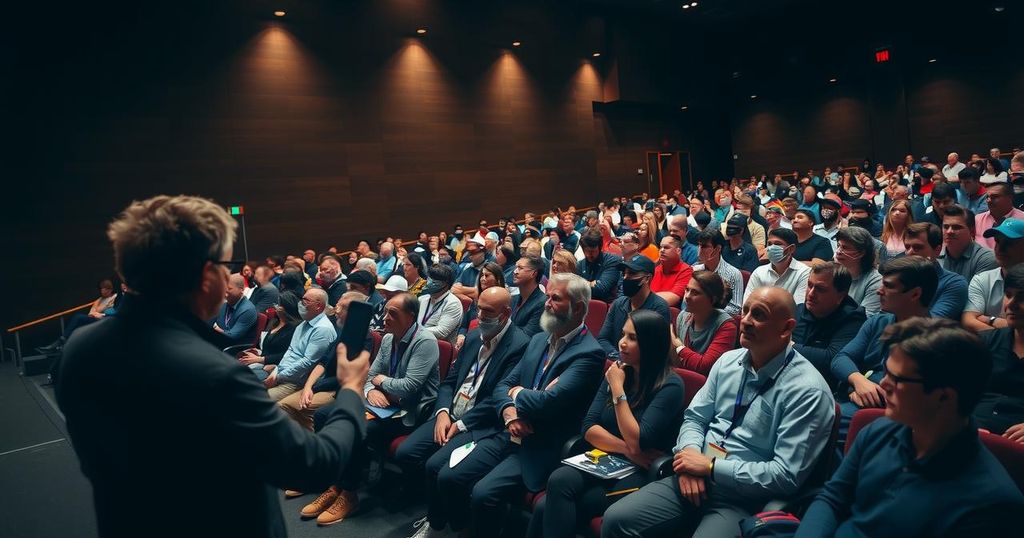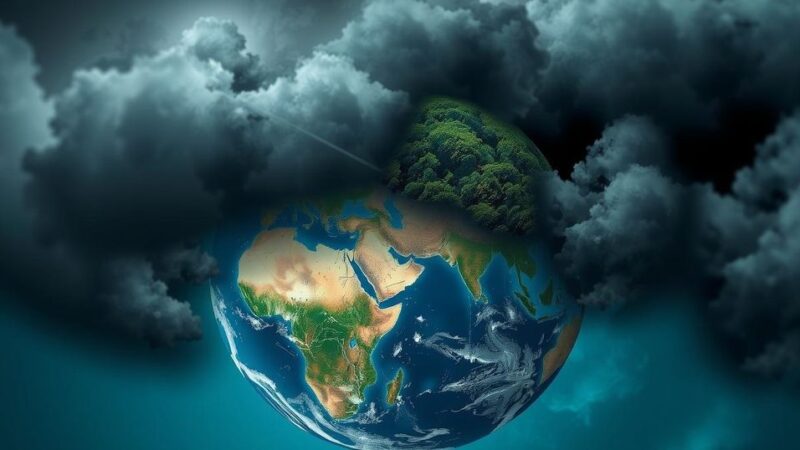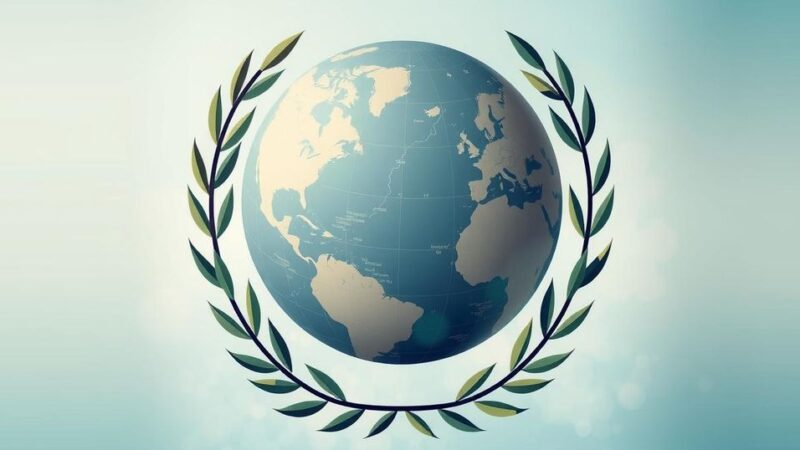On Thursday, Aaron Mair, former Sierra Club president, delivered a lecture at the Human Rights Institute, focusing on intersectionality and the climate crisis. Mair discussed the disproportionate impact of climate change on marginalized communities and advocated for equitable climate action. Co-directors Professor Cingranelli and Professor Moore organized the event, highlighting the importance of addressing environmental justice. Mair emphasized the role of young activists and the necessity of integrating social justice into climate action. The institute will introduce a new course in the winter semester to further explore these critical issues.
On Thursday, the Human Rights Institute hosted a significant lecture presented by Aaron Mair, an esteemed activist and former president of the Sierra Club, class of 1984, who engaged in a critical discussion on intersectionality and the climate crisis. The event transpired in Casadesus Recital Hall and illuminated the multifaceted nature of climate change. In alignment with the United Nations COP 28 call to action, Mair emphasized the impact of climate change on marginalized communities, advocating for an intersectional approach that addresses the unique needs and vulnerabilities of various demographics. The organization of this impactful event was led by the institute’s co-directors, Professor David Cingranelli, a political science scholar, and Professor Alexandra Moore, an English professor. Cingranelli communicated the essential nature of discussions surrounding environmental issues, stating, “Climate change is one of the most significant threats to human dignity.” Aaron Mair is recognized as a dedicated environmental advocate who champions the cause of preserving a clean and healthy environment. His tenure as the 57th president of the Sierra Club marked a historical moment, as he was the first African American to hold this position. Mair, with decades of experience in environmental justice, continuously focuses on addressing health disparities associated with climate change while advocating for wilderness conservation. During his address, Mair poignantly outlined the existing disparities exacerbated by the climate crisis, stressing that both American communities and nations in the Global South suffer greatly, particularly in non-democratic regions. He remarked on the brutal realities faced by environmental activists worldwide, highlighting, “We’ve got hundreds of wilderness activists that have been killed, murdered, shot… not only in Africa, but also in Central America, Latin America…” Mair also reflected on the hardship faced by Black working-class residents during Hurricane Katrina, illustrating how systemic inequities intensified the devastation of the storm. He lamented that the aftermath of such natural disasters often results in “wealth creation off of a crisis on the backs of communities of color.” Throughout his lecture, Mair reiterated the necessity for students to engage with their communities to promote substantive change. He highlighted the pivotal role of young activists in confronting environmental and human rights challenges, emphasizing that the endeavor is fundamentally a struggle for humanity that spans both intersectional and intergenerational lines. “I think someone mentioned that that term, intersectionality, is kind of overused… But it’s an analytical lens and framework,” he said, stressing the importance of that perspective for meaningful progress. In his conclusion, Mair underscored that addressing climate change effectively necessitates both scientific understanding and a profound awareness of social justice questions. He emphasized that communities of color have historically led the fight against climate change, paving the way for inclusive and equitable solutions. Mair concluded with a call to political action, urging students to vote for just causes, stating that it is vital “for humanity.” The Human Rights Institute, continuing its support of related initiatives, will introduce a new course titled “Climate, Crime & Human Rights” in the upcoming winter semester, exploring significant narratives such as eco-terrorism and the Flint water crisis. Professor Moore reiterated the institute’s commitment to tackling human rights and environmental issues through various platforms. “The Human Rights Institute helps to support the Food Justice Working Group…” she stated, underscoring their active role in promoting environmental sustainability and food justice at both the campus level and within the wider community.
The lecture delivered by Aaron Mair is set against the growing urgency of addressing climate change’s effects on various communities, particularly marginalized groups. This topic has garnered increased attention following the United Nations COP 28 summit, which aims to facilitate international cooperation to combat climate change. Mair’s engagement at the Human Rights Institute focuses on the intersectionality of social justice and environmental issues, highlighting how systemic inequities exacerbate the impacts of climate change on vulnerable populations. His extensive experience as an environmental justice advocate and former president of the Sierra Club adds authoritative weight to the discussion, emphasizing the need for equitable solutions to climate challenges. Furthermore, the involvement of the institute in supporting initiatives like the Food Justice Working Group showcases a proactive approach to intertwining human rights with environmental advocacy.
The lecture by Aaron Mair successfully illuminated the intricate connections between the climate crisis and social justice issues. Mair’s compelling advocacy for an intersectional approach serves as a clarion call for students and activists alike to engage meaningfully with environmental challenges and advocate for marginalized communities disproportionately affected by these crises. By continuing to foster discussions and educational initiatives, the Human Rights Institute reinforces the importance of collective action in addressing both environmental and human rights concerns, emphasizing the ongoing need for dedicated activism in these areas.
Original Source: www.bupipedream.com






